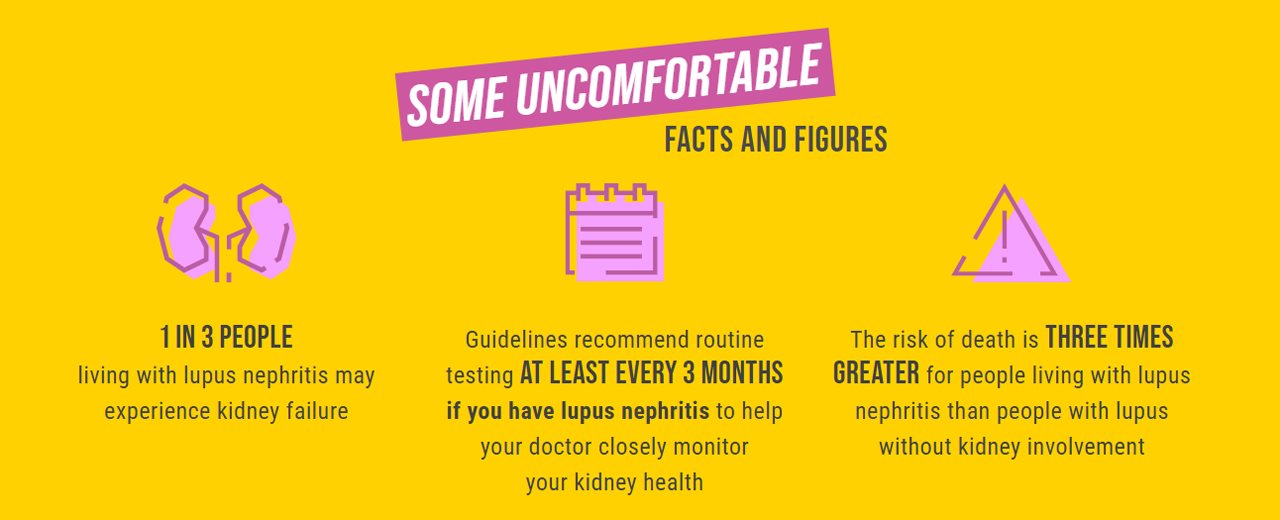2024-03-28T11:01:00
(BPT) – Living with lupus for over 15 years has meant dealing with some very uncomfortable moments for Grammy award-winning singer Toni Braxton. But according to Toni, the discomfort is worth it to manage her kidney health and prevent life-threatening complications from lupus.
“Getting routine tests is not my favorite thing,” Toni acknowledges. “Peeing in a cup and getting poked with needles can be uncomfortable, but I’ve learned to embrace these uncomfortable moments because I know they could save my life.”

Lupus can affect many parts of the body including the joints, skin, brain, heart, lungs and kidneys. But when it causes inflammation of the kidneys, it’s known as lupus nephritis. It’s estimated that up to 50% of people with lupus may develop lupus nephritis which can lead to kidney failure, increased blood pressure and cardiovascular complications like heart attack and stroke.
Toni is encouraging anyone living with lupus to prioritize their kidneys by going to the doctor for routine testing — something she wishes she had done sooner. After being diagnosed with lupus, Toni began experiencing new symptoms but didn’t open up to her doctors right away. She told herself it was just because she was stressed, tired and working too hard.
“The scariest part is that lupus can come with complications that can be life threatening, and the symptoms are often silent,” Toni says. “Many people with lupus don’t realize they are having issues with their kidneys until the damage is already done — which could mean dialysis or even a kidney transplant.”
Whether you’ve just been diagnosed with lupus, you’ve been living with lupus for years or you have a loved one living with lupus, it is important to understand the health of your kidneys to detect lupus nephritis early. Early diagnosis and treatment may help prevent irreversible kidney damage and other serious complications. Here are four steps you can take to protect your kidneys:
1. Know the risks:
About 1 in 2 people with lupus may go on to develop lupus nephritis. Women of color have an increased risk for developing lupus nephritis. Black and Asian women are four times more likely to develop lupus nephritis and Hispanic women are twice as likely compared to non-Hispanic white women. Additionally, people are often diagnosed with lupus nephritis when they are in their 20s, at a time when they may be in school, launching their career or starting a family.
2. Know the symptoms:
Lupus nephritis can be silent, but it is serious. Just because you don’t always notice the symptoms doesn’t mean they aren’t there. You can keep an eye out for signs like:
- Swelling in the feet or ankles
- Increased blood pressure
- Frothy or sudsy urine, and/or the need to frequently urinate
3. Know the importance of routine testing:
Symptoms of kidney involvement with lupus can be subtle, inconsistent and hard to recognize. You may not notice the signs of kidney damage, but with routine urine or blood tests, your doctor can. Guidelines recommend that people living with lupus complete routine testing at every visit. Hear from kidney health experts on how routine testing helps them monitor your kidney health.

4. Know the right questions to ask your care team:
It is critical to stay up to date with your doctor’s appointments and to have open and honest conversations about lupus and your kidney health. Before your next appointment, make sure to complete routine testing and write down any symptoms you’ve experienced over time, and note any changes to your symptoms between appointments. Be your own health advocate and ask any questions you have.
Visit GetUncomfortable.com to learn more about how you can take steps now to prioritize your kidney health and to schedule an appointment with a specialist in your area.


